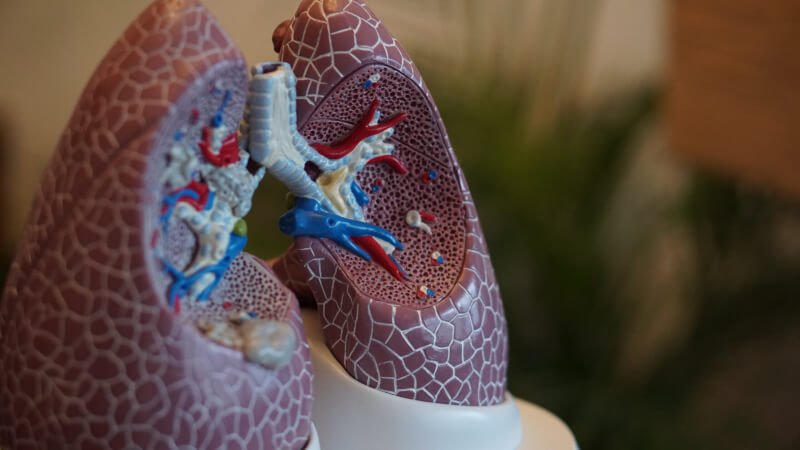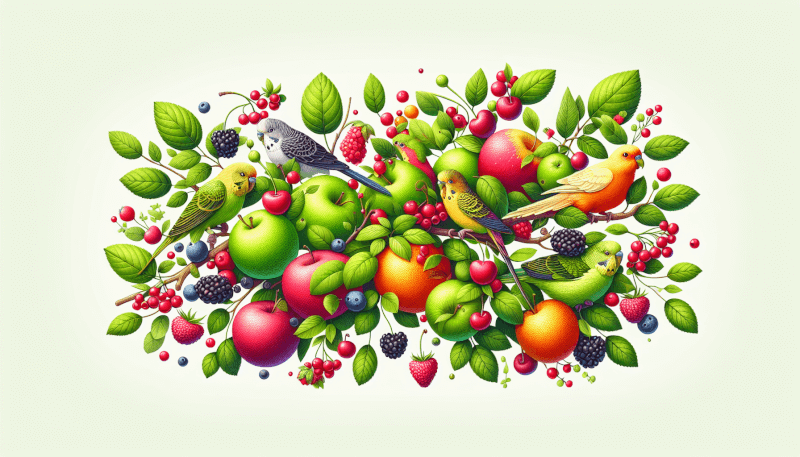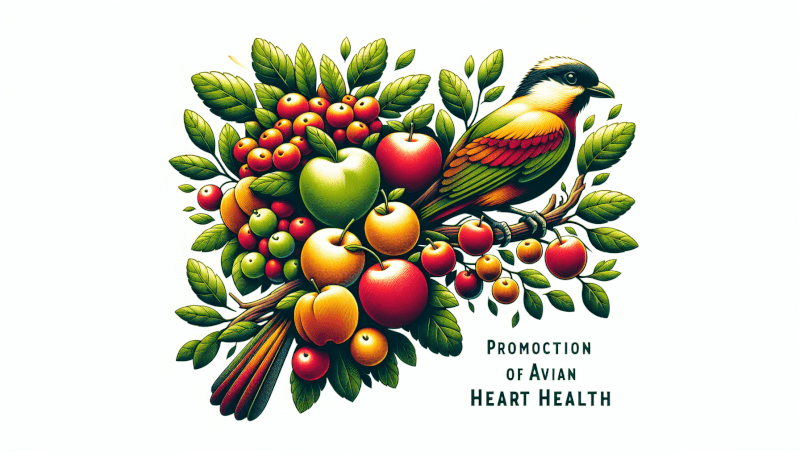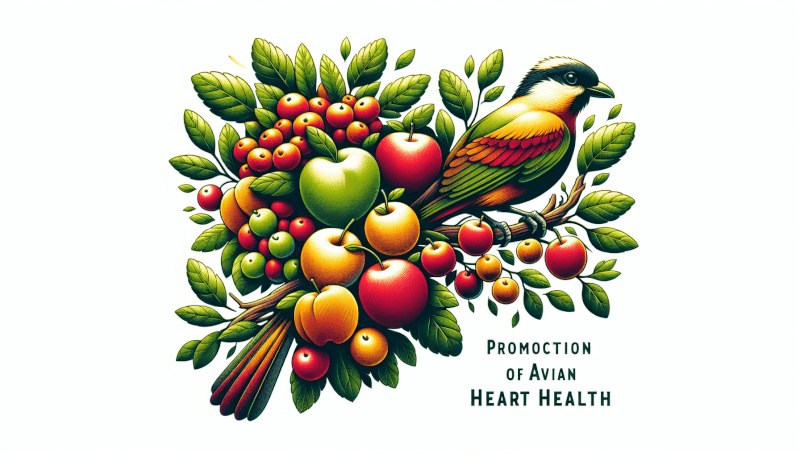If you’re a proud owner of a feathered friend, it’s important to prioritize their heart health. Just like humans, birds are susceptible to heart-related issues. To ensure your avian companion lives a long and healthy life, this article provides a comprehensive guide filled with top tips for promoting their heart health. From proper nutrition to regular exercise, implementing these tips will not only keep your feathered friend happy but also help them soar to new heights of vitality.

Diet and Nutrition
Provide a balanced diet
When it comes to promoting the overall health of your bird, a balanced diet is key. Incorporate a variety of fresh fruits, vegetables, grains, and lean protein sources into their meals. This will ensure that they receive all the necessary nutrients to support their bodily functions and maintain optimal health.
Include fresh fruits and vegetables
Fresh fruits and vegetables should be a staple in your bird’s diet. These natural and nutrient-dense foods provide essential antioxidants, vitamins, and minerals that contribute to their overall well-being. From leafy greens like spinach and kale to vibrant fruits like berries and oranges, the options are endless. Just make sure to research which fruits and vegetables are safe for your specific species of bird, as some may be toxic.
Limit processed foods
While it may be easier to rely on commercial bird pellets or seeds, it is essential to limit processed foods in your bird’s diet. These foods often lack the necessary nutrients and can lead to imbalances and deficiencies over time. Instead, focus on providing a variety of fresh, whole foods to ensure that your bird receives a wide array of essential nutrients.
Avoid foods high in salt and sugar
Similar to humans, birds should avoid foods that are high in salt and sugar. Excessive consumption of these substances can lead to health issues such as obesity, high blood pressure, and diabetes. When offering treats, opt for healthy alternatives like small pieces of fruit or vegetables. Remember, moderation is key to maintaining a healthy balance in your bird’s diet.
Exercise and Enrichment
Encourage regular physical activity
Just like humans, birds need regular physical activity to maintain their physical and mental well-being. Encourage your bird to engage in activities that stimulate their natural behaviors, such as flying, climbing, and exploring. Providing ample space for them to move around freely, both inside their habitat and during supervised out-of-cage time, is crucial for their overall health.
Provide opportunities for flying and climbing
To ensure that your bird gets enough exercise, it’s important to provide them with opportunities for flying and climbing. If possible, let them fly in a safe and secure area within your home or consider providing a spacious aviary outdoors. Invest in bird-safe perches and branches that allow them to climb and exercise their muscles. These activities not only promote physical health but also help to prevent boredom and encourage mental stimulation.
Offer toys and puzzles for mental stimulation
In addition to physical exercise, mental stimulation is equally important for your bird’s well-being. Provide a variety of toys, puzzles, and interactive games to keep their minds active and engaged. Birds are naturally curious creatures, so offering toys that encourage foraging, problem-solving, and exploration can provide them with hours of entertainment and mental stimulation.
Environmental Factors
Maintain a comfortable temperature in the bird’s habitat
Creating a comfortable environment for your bird is crucial for their overall health and well-being. Ensure that the temperature in their habitat remains within a suitable range for their species. Extreme temperatures can lead to stress and health issues. Consult with avian experts or your veterinarian to determine the optimal temperature range for your specific bird species.
Avoid exposure to toxins and pollutants
Birds are very sensitive to toxins and pollutants in their environment. It’s essential to keep them away from harmful substances such as chemicals, pesticides, and fumes from cleaning products. Use bird-friendly cleaning agents and be mindful of any potential hazards in the area where your bird resides. Keep in mind that even items like scented candles or air fresheners can have negative effects on their respiratory health.
Minimize stress and noise in the environment
Creating a calm and stress-free environment is vital for your bird’s well-being. Birds thrive in peaceful surroundings, so it’s important to reduce noise and disturbances as much as possible. Avoid loud music, excessive shouting, or sudden noises that may startle or stress your bird. Additionally, ensure that their habitat is located in a relatively quiet area of your home, away from heavy foot traffic or other stress-inducing factors.
Regular Veterinary Care
Schedule regular check-ups
Just like any other pet, birds require regular veterinary care. Schedule routine check-ups with an avian veterinarian to ensure that your bird is in good health and to catch any potential issues early on. During these visits, your veterinarian will perform a thorough examination, including checking the bird’s heart and respiratory system, as well as discussing any concerns or changes in behavior.
Monitor heart health through diagnostic tests
Heart health is crucial for your bird’s overall well-being, and diagnostic tests can provide valuable insights into their cardiac function. With the help of your avian veterinarian, monitor your bird’s heart health through tests such as electrocardiograms (ECGs) or radiographs (X-rays). These tests can help identify any abnormalities or signs of heart disease in their early stages, allowing for prompt treatment and management.
Discuss any changes in behavior or appetite with a vet
Birds are experts at hiding signs of illness, so it’s essential to stay vigilant and observant. Any changes in behavior, appetite, or appearance should be discussed with your avian veterinarian as soon as possible. These changes could be indicative of underlying health issues that require attention. Early detection and intervention can significantly impact your bird’s well-being and overall prognosis.

Preventing Obesity
Monitor portion sizes
Portion control plays a vital role in preventing obesity in birds. It’s important to provide an appropriate amount of food to meet their daily nutritional needs without overfeeding. Consult with your avian veterinarian or avian nutritionist to determine the appropriate portion sizes for your bird’s specific species, age, and activity level.
Limit high-fat treats
While treats can be a great way to bond with your bird and provide enrichment, it’s crucial to be mindful of their nutritional content. Limit high-fat treats, such as fatty seeds or sugary snacks, as these can contribute to weight gain and other health issues over time. Instead, opt for healthier alternatives like small pieces of fresh fruit or vegetables.
Encourage exercise and play to burn calories
Regular exercise and playtime are essential for burning calories and maintaining a healthy weight. Encourage your bird to engage in activities that promote physical activity, such as flying or playing with toys that require movement. Additionally, interactive playtime with you, such as gently tossing a ball back and forth, can provide both mental and physical stimulation.
Avoiding Tobacco Smoke
Keep birds away from cigarette smoke
Tobacco smoke contains harmful chemicals that can have detrimental effects on the respiratory health of birds. Keep your bird away from any smoking areas, both indoors and outdoors. The best approach is to create a smoke-free environment around your bird to ensure their respiratory system remains healthy and free from potential complications.
Avoid smoking indoors
If you are a smoker, it is highly recommended to avoid smoking indoors, especially in close proximity to your bird’s habitat. The harmful smoke can easily enter their living space and negatively impact their respiratory health. Make your home a smoke-free zone for the well-being of both you and your bird.
Provide a smoke-free environment
In addition to avoiding smoking indoors, it’s crucial to create a smoke-free environment for your bird. Minimize exposure to secondhand smoke by ensuring that visitors or family members refrain from smoking near your bird’s habitat. Educate those around you about the potential dangers of smoke inhalation for birds, and kindly ask them to respect the smoke-free policy in your home.

Maintaining Optimal Weight
Monitor the bird’s weight regularly
Regularly monitoring your bird’s weight is crucial for maintaining their optimal weight. Weight fluctuations can indicate potential health issues, including both over and underweight conditions. Keep a log of your bird’s weight and consult with your veterinarian if you notice any significant changes. They can guide you on appropriate actions to take to ensure your bird remains at a healthy weight.
Adjust diet and exercise accordingly
If your bird is showing signs of being overweight or underweight, it’s important to adjust their diet and exercise regimen accordingly. Consult with your avian veterinarian to determine the best course of action for your bird’s specific needs. They may recommend modifying their food portions, altering the food composition, or increasing their exercise routine to help achieve and maintain a healthy weight.
Consult a veterinarian for guidance
If you are unsure about your bird’s current weight or how to effectively maintain their optimal weight, consult with your avian veterinarian. They are the best resource for guidance and can provide a comprehensive assessment of your bird’s health and weight management needs. They can provide customized advice and recommendations specific to your bird’s species, age, and overall health.
Good Hygiene Practices
Keep the bird’s habitat clean
Maintaining a clean habitat is paramount to your bird’s health and well-being. Regularly clean their enclosure, removing any waste, debris, or uneaten food. Ensure that their living space is free from any potential contaminants, such as mold or bacteria. A clean habitat not only helps prevent the spread of disease but also promotes an overall healthy environment for your bird.
Regularly clean and disinfect food and water bowls
To prevent the growth of harmful bacteria or the spread of illness, it is crucial to regularly clean and disinfect your bird’s food and water bowls. Use bird-safe cleaning agents and rinse them thoroughly to remove any residue. Clean bowls not only promote good hygiene but also ensure that your bird is consuming fresh and uncontaminated food and water.
Maintain a clean and well-ventilated environment
In addition to cleaning the bird’s habitat and their food and water bowls, it’s important to maintain a clean and well-ventilated environment overall. Regularly clean the surrounding areas, ensuring that dust or other potential allergens are kept to a minimum. Good ventilation helps improve air quality and prevents the buildup of harmful substances that could negatively impact your bird’s respiratory health.

Reducing Stress
Provide a calm and predictable routine
Birds thrive on routine and predictability. Establish a calming and consistent routine that your bird can rely on. This includes regular feeding times, exercise sessions, and out-of-cage exploration time. Minimize sudden changes or disruptions in their environment and strive to maintain a stable and stress-free routine for their overall well-being.
Create a safe and secure environment
Creating a safe and secure environment is vital for reducing stress in birds. Ensure that their habitat is escape-proof and free from potential hazards or sharp objects. Place the cage in a location with minimal foot traffic and away from any potential stressors like noisy appliances or direct exposure to sunlight. By providing a safe environment, you can help alleviate stress and promote a sense of security in your bird.
Minimize exposure to loud noises and sudden changes
Birds are sensitive to loud noises and sudden changes in their environment. Minimize exposure to loud noises like vacuum cleaners or construction work, as these can startle and stress your bird. Additionally, avoid sudden changes in their surroundings or routines, as this can disrupt their sense of security. By minimizing stressors, you create a calmer and more comfortable environment for your bird.
Avoiding Excessive Handling
Limit handling to avoid unnecessary stress
While it may be tempting to handle your bird frequently, it’s important to limit handling to avoid unnecessary stress. Birds need time to settle and become accustomed to their environment before feeling comfortable with handling. Respect their boundaries and allow them to dictate the level of interaction they are comfortable with. This will help promote trust and reduce stress in your bird.
Allow the bird to rest and settle in its habitat
When introducing a new bird to its habitat, it’s important to allow them sufficient time to rest and settle in. Avoid excessive handling or disruptions during this period. Let them explore and become familiar with their surroundings at their own pace. This process can help reduce stress and anxiety, allowing your bird to adapt more easily to their new home.
Handle the bird gently and with care
When handling your bird, it’s crucial to do so gently and with care. Avoid any sudden movements or squeezing that may cause discomfort or stress. Support their body properly by placing one hand beneath their chest and the other under their feet. Speak softly and reassuringly as you handle them. By showing respect and care during handling, you can help establish a positive and trusting relationship with your bird.
Promoting a healthy and happy life for your bird requires a combination of proper diet and nutrition, exercise and enrichment, a suitable environment, regular veterinary care, and good hygiene practices. By following these tips and providing the necessary attention and care, you can help ensure that your bird lives a long, vibrant, and fulfilling life. Remember, your feathered friend depends on you for their overall well-being, so embrace your role as a responsible bird owner and enjoy the wonderful companionship they bring into your life.



